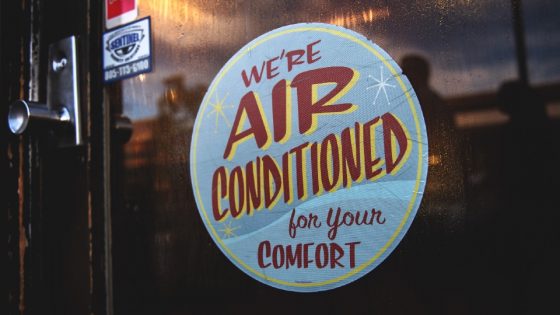Over the last decade, commercial HVAC (Heating, Ventilation, and Air Conditioning) technology has witnessed a paradigm shift, driven by the dual mandates of energy efficiency and improved indoor air quality. These evolutions reflect broader trends in environmental sustainability, smart technology integration, and the push for healthier workspaces. Here we highlight key developments in commercial HVAC systems and their implications for the future of climate control in commercial settings…
Around 2010, the HVAC landscape in the UK was primarily dominated by traditional systems focused on delivering heating and cooling at the lowest initial cost, without a substantial focus on long-term energy use or efficiency. However, the Energy Performance of Buildings Directive (EPBD) and the UK’s commitment to reducing greenhouse gas emissions have been instrumental in shaping a new generation of HVAC solutions.
One of the most significant advancements in the UK’s commercial HVAC sector has been the widespread adoption of energy-efficient systems. Newer models of boilers and chillers now come with higher SEER (Seasonal Energy Efficiency Ratio) ratings. Technologies like heat pumps have gained popularity, especially those that use ground or air sources to provide energy-efficient heating by transferring heat rather than generating it through combustion.
Another critical development has been the adoption of Building Management Systems (BMS) and the integration of smart controls. These technologies have enabled facilities managers to achieve unprecedented levels of precision in environmental control and system responsiveness. The BMS interfaces with all components of a building’s HVAC system, optimizing performance and providing insights into energy usage patterns, leading to reduced energy consumption and costs.
The UK’s drive for better air quality, particularly in urban areas, has seen innovations in ventilation technology. Demand-controlled ventilation (DCV) systems now adjust air flow based on occupancy levels or the quality of indoor air, which is particularly relevant given the heightened awareness of airborne health risks post-COVID-19.
Renewable energy sources have also begun to play a role in HVAC solutions. Solar thermal panels, biomass boilers, and heat recovery systems are being integrated into commercial buildings, helping businesses to reduce their carbon footprint and comply with the UK’s ambitious climate targets.
Moreover, the refrigerants used in HVAC systems have also been an area of significant change due to their global warming potential (GWP). The UK has been active in phasing out hydrochlorofluorocarbons (HCFCs) and other high-GWP refrigerants in favor of alternatives like hydrofluoroolefins (HFOs) and natural refrigerants, which are more environmentally friendly.
Throughout the decade, regulatory changes such as the Minimum Energy Efficiency Standards (MEES) have pressured the commercial sector to retrofit older HVAC systems with modern, more efficient alternatives. These regulations have led to innovative retrofit solutions that improve the efficiency of existing systems without the need for full system replacement.
Looking forward, the UK’s commercial HVAC landscape is likely to continue its evolution towards even greater efficiency and integration with smart grid technology. The growing trend towards net-zero buildings and the digitisation of energy systems presents further opportunities for HVAC technology to contribute to a more sustainable and energy-efficient future.
The last decade has seen UK commercial HVAC systems transition from a focus on basic comfort to becoming key players in energy management and environmental sustainability. These changes reflect broader societal shifts towards green building practices and the utilization of advanced technology to achieve a lower carbon footprint, heralding a new era of HVAC solutions that align with the UK’s vision for a cleaner, smarter, and more sustainable built environment.
Are you looking for HVAC solutions for your business? The Energy Management Summit can help!
Photo by Gritt Zheng on Unsplash






